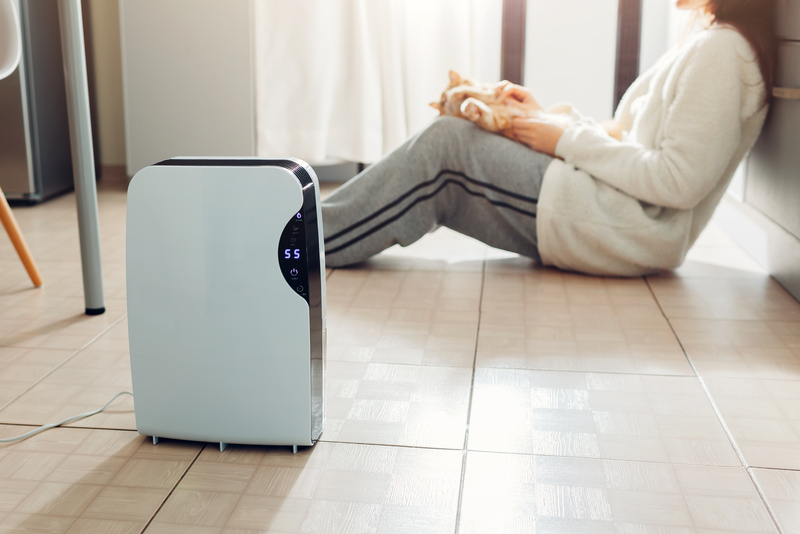
Signs Your Home has Poor Humidity
When we think of humidity, we often think of balmy Hawaii or the arid Sonoran Desert, but there is more to the story than just what’s going on outdoors. In fact, humidity is a key factor in the comfort we experience inside our homes. It can affect our furniture, our HVAC systems, and even our respiratory health. Experts recommend we keep our indoor humidity levels between 30 and 50%, but without a hygrometer, it can be hard to tell if you’re sitting at the right percentage. Here are just some of the signs that your humidity levels may be much higher or lower than the recommended amount.
You Feel Dry & Itchy
Nowadays we are spending more and more time indoors. If during all this time at home you notice your skin and hair are constantly dry, your throat feels sore in the mornings, and your lips are chapped, it may be a sign your humidity levels are too low.
Your Furniture is Beginning to Warp
Just as much as our skin, wooden furniture, door frames, and moulding are also very sensitive to shifts in humidity levels. Low humidity can cause shrinking and cracking while an environment that is too damp will cause swelling. Either way, this breaks down the wood and causes unsightly warping.
You’re Not Sleeping Well
If you’re struggling to sleep at night, your indoor humidity levels may be off. Too much humidity makes your body think it is too warm and as a result, you’ll work harder to evaporate sweat. Alternatively, dry air can be irritating to your respiratory system and wake you up with fits of coughing.
You’re Struggling to Breathe
Speaking of your respiratory system, there are other impacts that humidity can have on it. High humidity can lead to chest tightness and wheezing, especially in asthma sufferers. Low humidity can cause a strain on your throat and lungs since there isn’t enough moisture. It can even result in nose bleeds.
You’re Getting Sick More Often
Getting sick is the last thing you’d want right now, but if you’re struggling with colds and coughs more than usual, it could be due to your humidity levels. If levels are too low, the excessive dryness could cause cracking in your skin and in your mucous membranes; this is the perfect place for bacteria to grow. Levels that are too high encourage fungus, mould, and dust mites to multiply in your home, also making you more susceptible to getting sick.
From all of this, it is easy to see that balancing humidity is extremely important. If you are experiencing any of the symptoms above, consider if it may be too moist or too dry in your home. For homeowners in the Surprise, Wickenburg, and Congress Areas, our team at McMillin can help you manage your humidity levels in a practical and efficient way. Contact us to get started!








0 comments